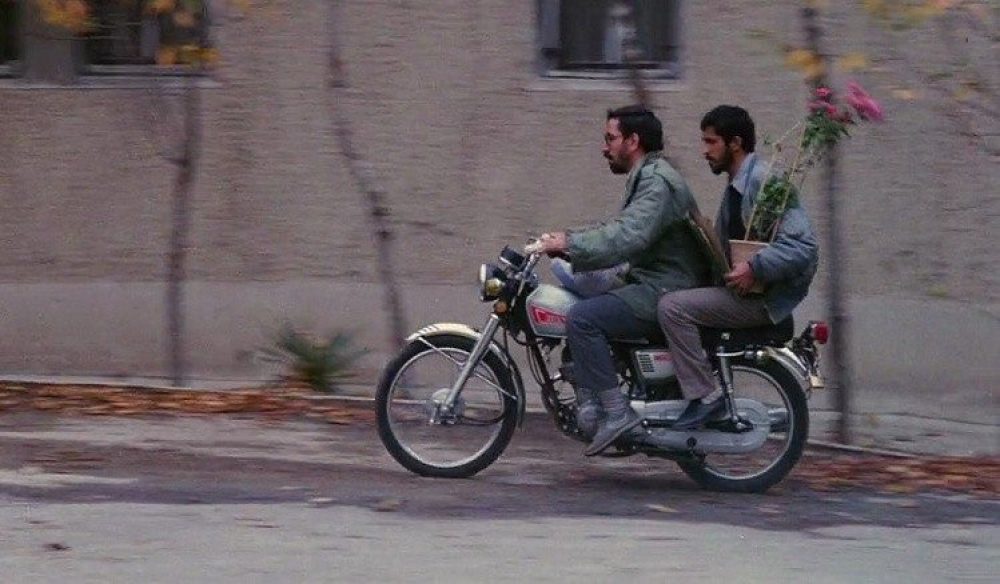In my first impression of it and upon further analysis of it, I very much appreciated this film. I love the ambiguously wise nature of it, the loud noises and incoherent shouts followed immediately by literally minutes of complete silence, the blank look on Hassan’s big bovine face as he stares at his neighbors and slowly chews hay.
Without analysis, it would be hard to examine this film as making a statement at all about the Iranian experience of modernity. I do believe that it says quite a bit about modernity though. The experience of the “hospital” as some far-away object capable of healing of the mind and the body very well experiences some of the first interactions between the premodern and the modern: a feeling of distant longing for modern amenities in times of trouble such as this one. I also loved observing the (largely sexist) relationship between men and women in this movie. One quote in particular stood out to me as meaningful, and I paraphrase: “Yes, good. It is not good to leave a young woman home alone.” This quote illustrates one relationship between men and women in rural Iran, after it had been exposed to “modern” ideas of the gender binary (as Afsaneh Najmabadi pointed out in her book) but before it had “modernized” enough to re-normalized the idea of woman as potentially just as dominant as men. The subtle subjugation of women in this film goes hand-in-hand with the illustration in this film of a culture of authority (as opposed to “reason”) and the portrayal of women as the spiritual/religious figures in Iran.
Despite the Chief being the chief of the village, it is clear throughout the film that Eslam is the true brains of the village. When the men talk about what to do with Hassan before they do decide to take him to the hospital, Eslam makes a suggestion, another man objects to the suggestion, and the Chief says “If Eslam suggested it, it must be a good idea.” In this sense, a strong authority culture is portrayed throughout the film, as the idea itself does not matter as much as the authority/ethos of the person suggesting the idea. There is a clear hierarchy of ethos that runs through all the men of the village, starting with the man with a mental disability on bottom, running up from the young troublemaker and irritating, avoidable man in the window all the way up to the Abbas, the Chief, and Eslam.
In the film, there are several occurrences of the whole village going out and engaging in some form of mass panic. In all these scenarios, however, the men do either the action or the reasoning. For example, when Hassan’s (unnamed) wife cries out, the whole village rushes to her rescue, but only the men are able to calm her down, and only the men figure out what to do after an answer is coaxed out of her. But, in the final gathering, which is Hassan’s “funeral” scene, the women run things. They conduct the ceremony, lead the men and children in mourning, etc. In all spiritual/religious events in the story (except when Eslam says that it is a sin to use animal skins), it is the women who are the main focus.
It is hard to tell the extent to which this film is strictly Iranian, since indeed it portrays a rural life that many already view as being typical, rural “pre-modern” life in any country. There is nothing in this film that could distinguish this film as being strictly Iranian, since the men in the village are largely “nationalistic” only for their own village (as distinct from the evil Bolouris), which many would characterize as “tribalism.” Perhaps this film is attempting to say something about the connection between “premodern values” (such as authority culture, the subjugation of women, the femininity of spirituality, the animal nature of mankind, etc.) and the lack of true nationalist fervor in a populace.
Sorry, this ended up being super long. I guess I got a little too excited.

It’s really a nice and helpful piece of information. I’m glad that you simply shared this helpful info with us. Please stay us up to date like this. Thanks for sharing.
Very nice post. I just stumbled upon your blog and wanted to say that I’ve really enjoyed browsing your blog posts. In any case I’ll be subscribing to your feed and I hope you write again soon!
“Moo”dernity | Iran, Islam, and the Last Great Revolution Fall 2018
Use this space to announce important information or provide extra promotion for a post, discussion, or calendar event.